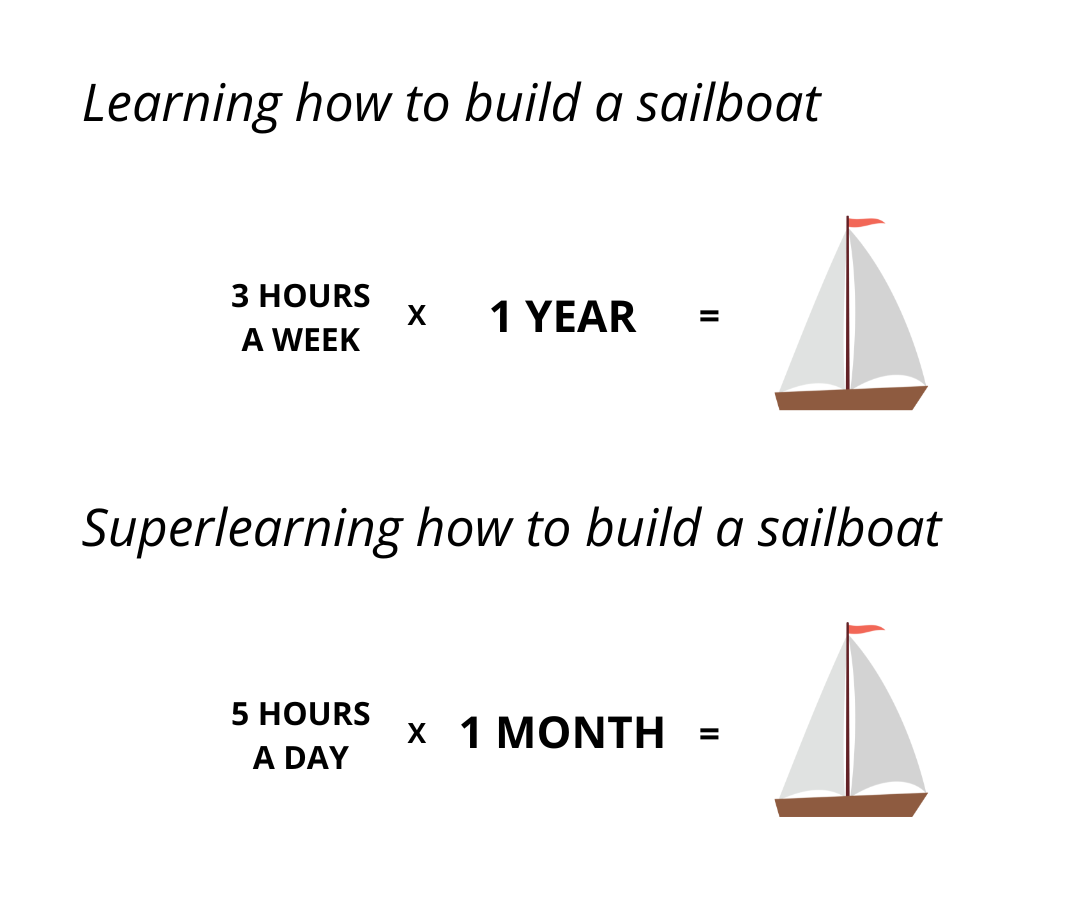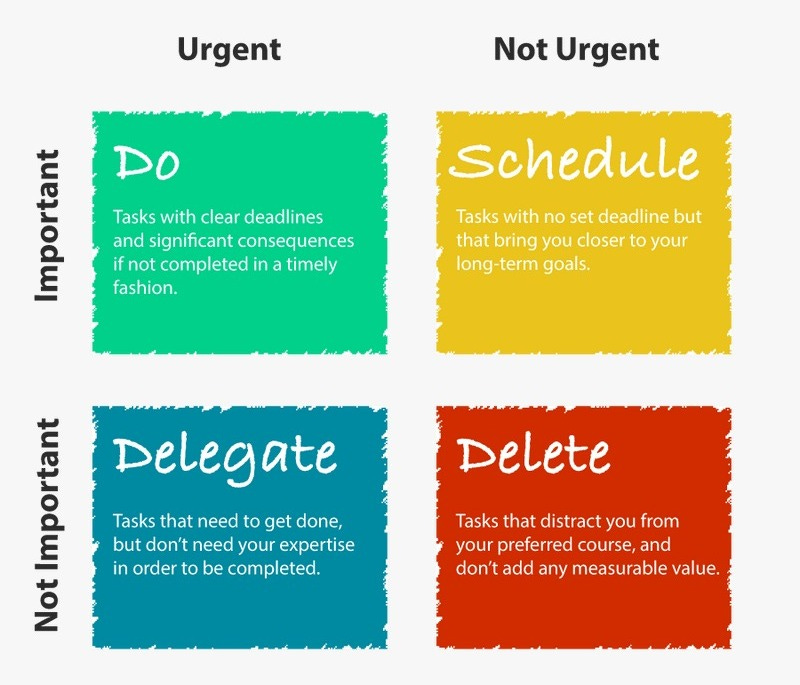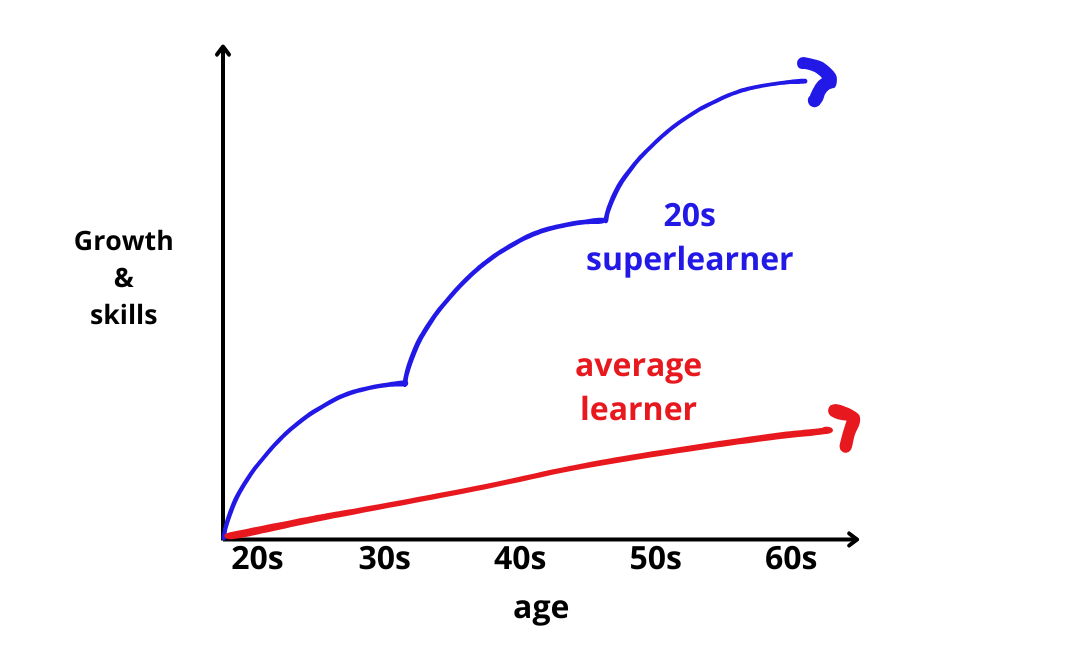The Compounding Effect of Superlearning in Your 20s
Summary: Superlearning, the practice of dedicating significant extra time and energy to acquiring knowledge and skills, can dramatically enhance career growth in one's twenties. Adopting 100-hour workweeks leads to compounded skills, stronger networks, and greater resilience. It is hard or impossible to catch up later in life if you don't benefit from the supercharged compounded learning in your 20s. The impact of hard work early is much bigger than efforts made later. Additionally, different skills (like learning from mentors or learning a new language) make more sense to learn in your 20s, while others can be more beneficial later (like leadership roles which require life experience). The article emphasizes that 100-hour workweeks are not crazy if those hours are productively spent in a combination of labor and learning, making the early investment worthwhile for long-term success, even more so than commonly thought.
Introduction
I want to introduce a concept to you: superlearning. This refers to doubling (or more) the time and energy spent in the process of acquisition of knowledge.
For example, you might decide that you really want to learn how to build a sailboat. The skills to do so would take a really long time to develop. So, you adopt super learning and devote an extra amount of time per day to garner all the skills you require, and reduce by orders of magnitude the time it would’ve taken you to obtain the desired knowledge.
When building your career, the path to success is often paved with relentless dedication and hard work. However, I want to argue that there is a specific time of your life - your 20s - that is worth dedicating to superlearning.
The compounding effect of experience posits that intensive labor, particularly in the early stages of one's career, can lead to exponential growth in skills, knowledge, and opportunities.
In this article I want to show you the profound impact of dedicating 100-hour workweeks during one's twenties (superlearning everything you can) and how this contrasts with a more balanced lifestyle, delving into the long-term ramifications of each choice.
Furthermore, I will discuss the strategic timing of skill acquisition, emphasizing the value of learning certain skills early in life, while focusing on others may yield greater benefits when pursued later.
The key point is this: if you don’t devote yourself to intensive learning in your 20s, it will be impossible to catch up later, no matter how hard you try. The headstart that people superlearning in their 20s get is so significant (especially considering how much easier it is to absorb knowledge and record it in memory at that young age), that later in life they will always be a step ahead from those trying to catch up.
What is Superlearning?
The term "superlearning" refers to a set of advanced learning techniques aimed at significantly enhancing the speed, efficiency, and retention of information.
It encompasses various strategies and methods designed to maximize the brain's learning potential, often drawing on principles from psychology, neuroscience, and educational theory.
In some contexts, superlearning refers to a specific method of ‘studying’. I am using it in a broader sense. Superlearning, in the context of dedicating significant extra time and energy to working (such as 100-hour weeks), can have compounding effects on your knowledge and expertise, especially in your 20s.
Here are five techniques to enhance superlearning, each aimed at maximizing your learning efficiency and retention, as well as becoming able to dedicate those extra hours to knowledge and skill-acquisition.
1. Strategic Prioritization and Time Management
To make the most of extended working hours, it's crucial to prioritize tasks and manage your time efficiently. Focus on high-impact activities that align with your long-term goals.
How to Implement:
Use tools like the Eisenhower Matrix (image below) to categorize tasks by urgency and importance.
Break down larger projects into manageable tasks and set specific deadlines.
Allocate focused time blocks for deep work, minimizing distractions.
2. Continuous Learning and Skill Development
Dedicate part of your extended work hours to continuous learning and skill development. This can include formal education, online courses, or self-study.
How to Implement:
Enroll in relevant courses on platforms like Coursera, Udemy, or edX.
Set aside time daily or weekly for reading industry-related books and research papers.
Attend workshops, webinars, and conferences to stay updated and network with peers.
3. Networking and Mentorship
Building a strong professional network and seeking mentorship can accelerate your learning and career growth. Leverage your extended work hours to connect with industry leaders and peers. Also, you might consider starting a mastermind group!
How to Implement:
Actively participate in industry meetups, online forums, and professional associations.
Seek out mentors who can provide guidance, feedback, and support.
Collaborate on projects and seek opportunities for peer learning.
4. Reflection and Iteration
Regularly reflect on your progress and iterate on your strategies. Use feedback and self-assessment to identify areas for improvement and adjust your approach accordingly.
How to Implement:
Keep a journal to document your learning experiences, successes, and challenges.
Schedule regular review sessions to evaluate your goals and progress.
Use feedback from mentors, peers, and self-assessment tools to refine your strategies.
5. Use Exponential, Rather than Linear Thinking
Shift from linear to exponential thinking. Instead of focusing on small, incremental improvements, aim to leverage compound learning. Knowledge compounds—the more you learn, the faster your growth accelerates.
How to Implement:
Rather than aiming to improve by 10%, ask yourself: “how can I improve by 10x?”
The more you learn, the more bits of knowledge connect and compound to build intelligence. Dedicate time to reflect on how different skills interconnect.
Take inspiration from Thiel’s Zero to One by asking: how could you achieve a 10-year learning goal in 6 months? In other words: compress timelines!
By strategically managing your time, continuously developing your skills, building a strong network, regularly reflecting on your progress, and maintaining balance and well-being, you can maximize the benefits of superlearning through extended work hours.
These practices can lead to exponential growth and compounding success in your 20s and beyond.
The Compounding Effect of Early Superlearning
The core idea of the compounding effect lies in the exponential accumulation of skills and experience over time.
Investing in 100-hour workweeks during one's twenties can be likened to an early investment in a high-yield savings account, where the initial sacrifices lead to greater returns as time progresses.
This intense period of learning and skill acquisition lays a robust foundation for future endeavors, creating a deep understanding of one's field, and developing resilience and a strong work ethic.
By working 100-hour weeks, you dive deeply into your field. This immersion allows you to develop a profound understanding of your industry, giving you an edge over your peers who may not have invested as much time.
Intensive work schedules help build resilience. Facing and overcoming challenges regularly strengthens your ability to handle stress and adversity, essential qualities for long-term success.
Working hard in your 20s ingrains a strong work ethic. This discipline and dedication become second nature, benefiting you throughout your career and personal life.
Skills and knowledge acquired early compound over time. Each new skill builds on previous ones, creating a snowball effect that accelerates your growth and expertise.
With a robust skill set and extensive experience, more opportunities become available. You can take on more significant projects, assume leadership roles, and command higher salaries.
The hard work and learning in your 20s pay off in the long run. You establish yourself as an expert in your field earlier, setting the stage for a successful and fulfilling career.
The compounding effects of superlearning in your 20s are profound. By investing in intensive work and learning now, you lay the groundwork for exponential growth and success.
This early investment in yourself reaps significant rewards throughout your career, making the initial sacrifices worthwhile.
Case Studies: The Dichotomy of Life Trajectories
Consider two individuals, Alex and Sam. Alex chooses to dedicate his twenties to intensive work, clocking in 100-hour weeks, while Sam opts for a more balanced approach, focusing equally on work and personal life. Over time, Alex amasses a wealth of experience, cultivates a vast professional network, and hones skills that take years to develop. In contrast, Sam, while maintaining a healthier work-life balance, may miss out on certain opportunities and the accelerated skill development that comes with immersive work experiences.
By 30, Alex is recognized as an expert, leading major projects and often speaking at industry conferences. His early sacrifices result in significant career advancements and financial rewards, positioning him as a leader in his field.
While Sam gains experience and steadily progresses in his career, he struggles to keep up with peers like Alex who invested intensively in their early years. By the time Sam realizes the need to accelerate his learning and work, the gap in skills and opportunities has widened, making it nearly impossible to catch up.
What’s the key takeaway?
Alex’s and Sam’s contrasting paths highlight that the impact of hard work and intensive learning early in life is exponentially greater than efforts made later.
Once someone a superlearner like Alex gains a significant head start in their 20s, it becomes nearly impossible for others to catch up, no matter how ‘fast they run’ later in life.
Let’s break it down with some simple math.
Suppose Alex works 100-hour weeks for five years, accumulating 5,200 hours of deep, focused learning annually, compared to Sam, who works the standard 40-hour weeks, clocking 2,080 hours per year.
After just five years, Alex has invested 26,000 hours, while Sam has only put in 10,400. That’s a difference of 15,600 hours—more than seven additional years of work at Sam’s pace.
But here’s the key point: Alex’s skills aren’t just 2x better than Sam’s—they are 10x better because knowledge compounds. With each additional hour of deep learning, Alex not only builds new skills but strengthens his ability to learn even faster, making future progress even more efficient.
By the time Sam tries to close the gap, the advantage Alex holds in terms of skills, network, and opportunities is so large that catching up becomes virtually impossible. Superlearners not only get ahead—they stay ahead.
The Importance of Timing
The timing of skill acquisition plays a crucial role in how effectively those skills are learned and retained.
In your twenties, the brain’s capacity for neuroplasticity—its ability to reorganize and form new neural connections—is at its peak. This makes it much easier to absorb new information, master complex tasks, and adapt to new challenges compared to later in life.
Young adults have a heightened ability to acquire and consolidate knowledge due to more robust synaptic plasticity, which diminishes with age. Moreover, younger people can retain information better and for longer periods, thanks to the increased production of myelin, which increases during adolescence and functions to enhance neural conductivity and efficiency. In other words, you will retain more of what you learn in your 20s than what you learn later in life.
Source: elearninginfographics.com
This biological advantage underscores the importance of tackling demanding tasks and learning new skills early on.
Some skills like mastering a new language, developing technical expertise, or even networking, are especially better for learning in your 20s. Acquiring these skills early in life allows you to leverage them over a longer period. For example, learning a second language in your twenties means you’ll have decades to use and benefit from that skill throughout your career.
On the other hand, skills that benefit from life experience—such as leadership roles—often develop more deeply later in life. These skills are enriched by the professional and personal experiences gathered over time.
Intense work during your twenties is also convenient due to your reduced responsibilities.
At this stage in life, with fewer personal responsibilities and a heightened ability to learn, your efforts have an amplified effect as you can devote most of your energies to your personal improvement. Later in life, the amount of responsibilities you need to sort in a day to day tends to increase.
The skills, relationships, and knowledge you acquire through superlearning in this period set the foundation for a lifetime of success, creating a ripple effect that extends far beyond these early years of hard work.
The earlier you invest in learning, the greater the compounding effect—both in your cognitive abilities and your career trajectory.
Conclusion
The compounding effect of superlearning in your 20s is a powerful and groundbreaking concept that underscores the transformative impact of dedicated work in one's early years.
While the path of intensive labor in one's twenties is not devoid of challenges, it offers a unique opportunity for accelerated growth and early achievement. However, it is crucial to recognize the importance of balance, self-awareness, and the strategic timing of skill acquisition.
Ultimately, the decision lies in the hands of the individual, shaped by their aspirations, values, and the life they envision for themselves. As we navigate the complexities of career and life, understanding and leveraging the compounding effect of experience can be a gamechanger in your path to long-term success.





